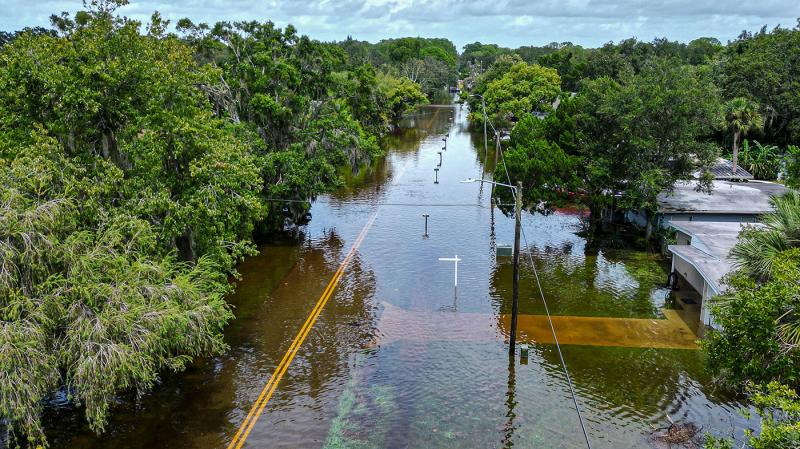Sen. Whitehouse: Climate change could crash the financial system
By: Saul Elbein (The Hill)


Right on cue. There's talk of more stringent 'Basel III' regulation of bank financing for climate mitigation projects and a Democrat threatens to drown the puppies.
Sen. Whitehouse likes to cite Florida and the Gulf Coast as examples of the risk of property values collapsing. As usual, that ignores that Manhattan is at risk, too. As is Rhode Island. Is this just another case of bait-and-switch politics to subsidize the northeast?

The Hill reported earlier this month on how opaque decisions within the insurance industry were laying the groundwork for where Americans will live as the planet heats.
But the risk goes beyond that, many experts warn: The complex interrelationships between insurance, mortgage lending and the broader financial system have made climate change “an emerging risk to financial stability,” according to the 2023 report by the Financial Stability Oversight Committee.
Senate Budget Committee Chair Sheldon Whitehouse (D-R.I.) has been a principal voice warning of the financial risks spilling over as climate change impacts the insurance industry.
Sen. Whitehouse sat down with The Hill to discuss why he worries climate change poses risk to the global financial system and the role of the Senate in addressing it.
Q: Some experts warn about the potential of Great Recession-style systemic risk from climate insurance — but others argue that, however serious that risk might be, it’s fundamentally a regional issue, restricted to places like Florida. Which side of that do you come down on?
Whitehouse: There are very significant indicators and it’s going to be big, national, and even global. A number of studies show a very high risk to the world economy from calamities — and insurance is at the heart of that.
The Florida insurance market is more or less circling the drain right now in the way in which Freddie Mac’s chief economist predicted: that with the danger of sea level rise and coastal storm activity, coastal properties become increasingly expensive to insure and then they become uninsurable.
And once they become uninsurable, they become unmortgageable. And once buyers can’t get mortgages for those properties, the values crash — because you’ll now only have cash buyers on the demand side.
And that was predicted by Freddie Mac to produce a systemic nationwide economic shock, akin to or greater than the [2008] mortgage meltdown.
Q: So to push back on that a bit, the mortgage industry would say, even if the Florida coast becomes uninsurable, it’s still a regional problem — however serious it might be.
Whitehouse. The problem with that is that the sea levels and storm risk aren’t just increasing in Florida.
You’re seeing it through South Texas. You’re seeing it in the Louisiana and Atlantic coast. Florida is getting first and worst because it has so much coast and a sketchy insurance market. But Florida would just be the leading edge of a problem that would hit coasts all around the United States.
And you now have [flooding’s] evil twin, wildfire risk. Once you get away from the coast and out particularly to the west and to areas where wildfire risk is no longer either temporally or geographically predictable.
Q: For the Senate Budget Committee — what legislative intervention could help defray some of that risk?
Whitehouse: I mean, obviously, solving the climate problem would put a huge amount of this risk out under better control.
When we’re looking at federal debt, a third of it — a whole third — was produced by unexpected shocks, like [the mortgage crisis of] 2008, and by COVID.
And there’s every reason to believe that the shock of an insurance and property values crash from coastal and wildfire risk would be worse than those.
The thing about these climate [risks], is that unlike 2008 — where there’s panic and economic crash, the bottom falls out of markets, but then the values return. [But] if the underlying risk is that the property is going to be underwater, or that the house is going to burn four or five times during the course of a 30-year mortgage, then that [risk] that doesn’t go away. So there isn’t a rebound.
That’s what makes it so dangerous.





Yep, the threat is real. But the flimflam neoliberal politics attempting to exploit the issue is inexcusable. Now we're being told that insurance needs a pre-crisis bail-out or the puppies will drown.
Just how much beachfront does Sheldon Whitehouse own in Rhode Island? Taxpayers are too jaded to believe Democrats don't put their self-interest ahead of public interests.
Baba Yaga …..